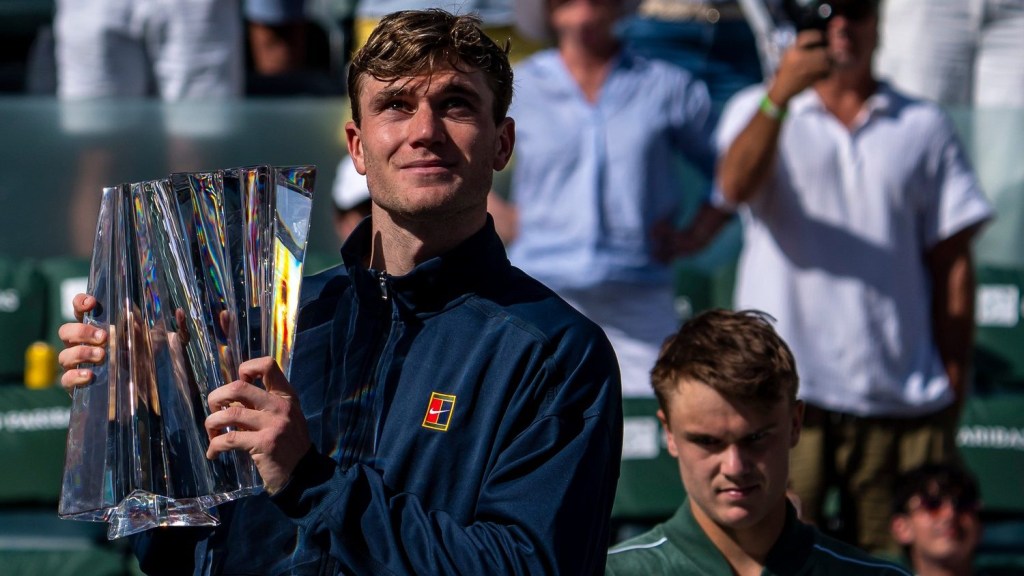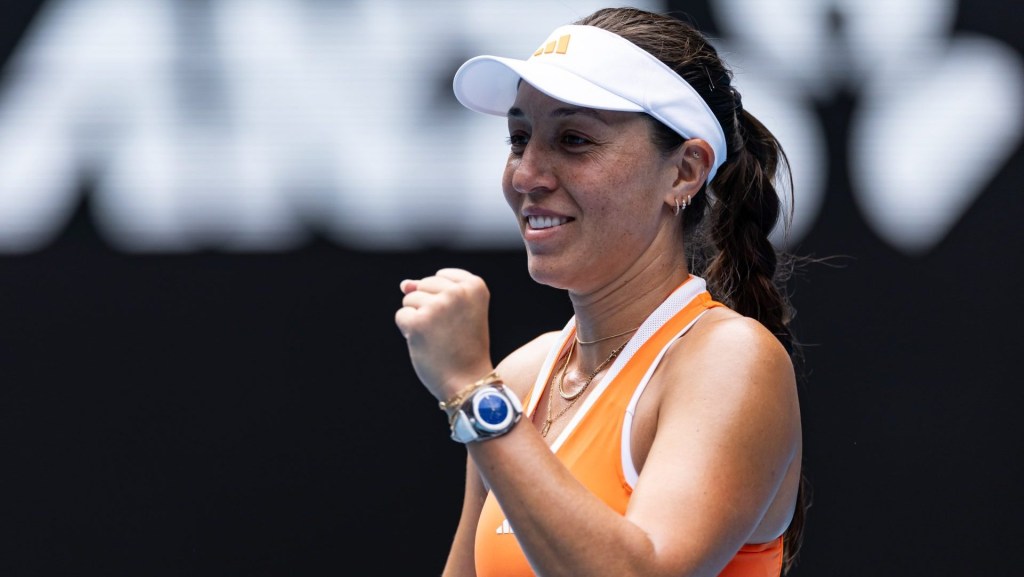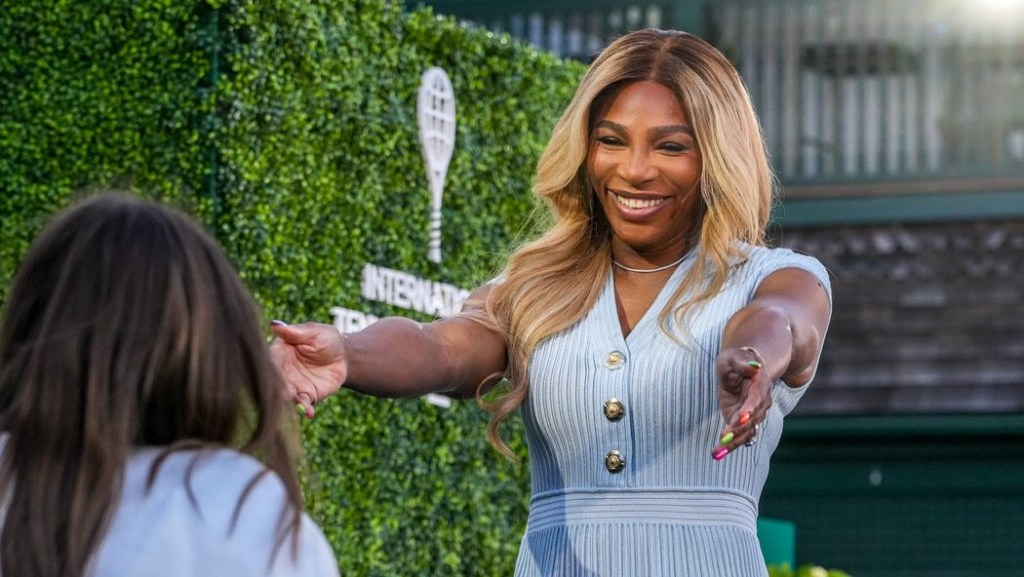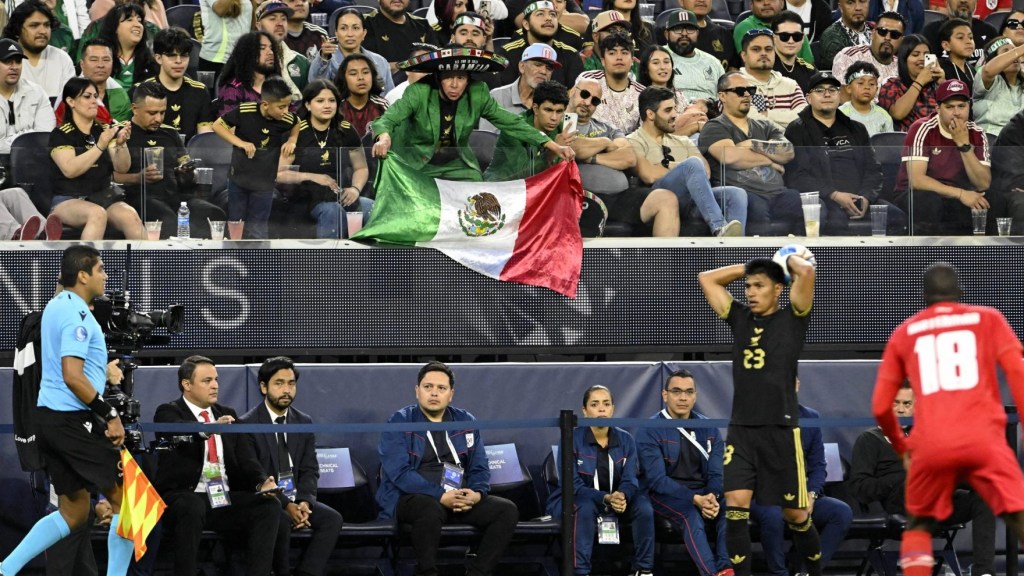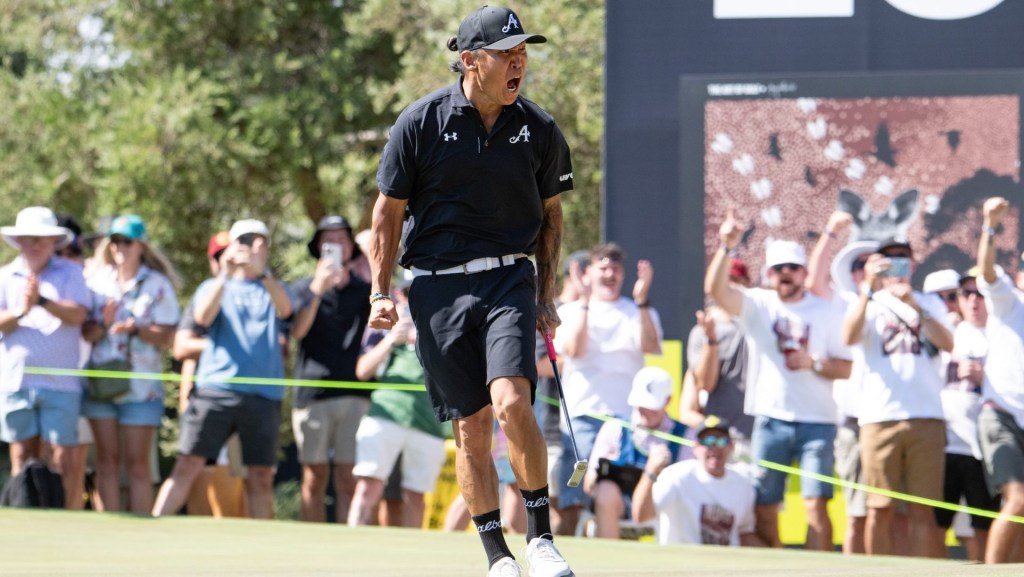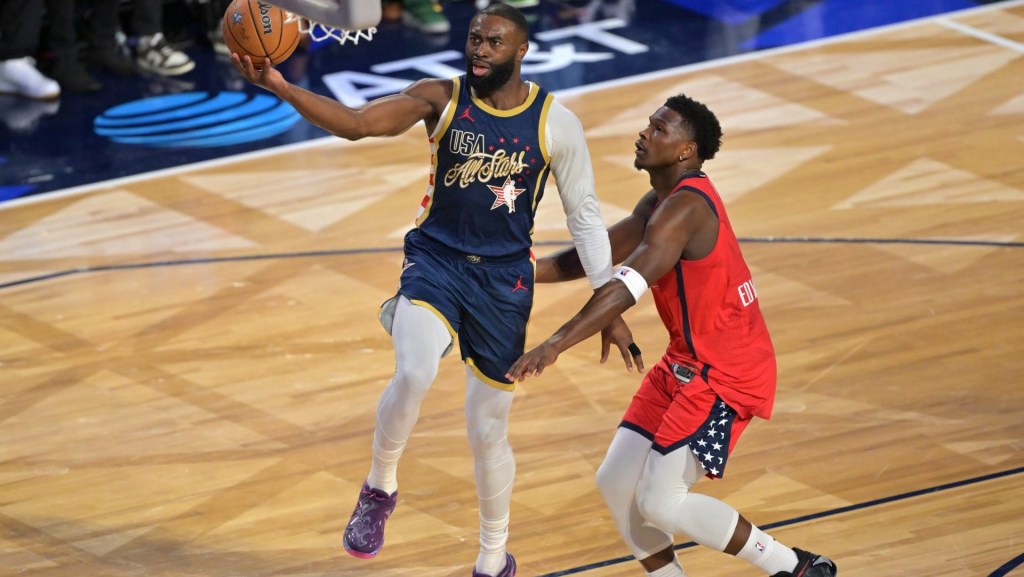After being selected 13th overall by the Toronto Raptors in last month’s NBA Draft, former Kansas sharp-shooter Gradey Dick got a DM reading “welcome home” from Drake, the rap icon and world’s most famous Raptors fan.
“He’s on tour right now, so I haven’t got to place a face, but when [Drake’s] back, we might meet up and just talk for the first time,” Dick, who was recently in Las Vegas for the NBA Summer League, told Front Office Sports. “I’m excited to meet him and pick [his] brain. He has a background with all this financial stuff.”
Drake — who, per Forbes, earned an estimated $49 million in 2020 alone — became a global ambassador for the Raptors in 2013, and his record label OVO acquired naming rights to the team’s practice facility in 2019. The Kentucky men’s basketball team recently practiced on Drake’s $100 million Toronto home gym, and his other sports interests span OVO’s FC Barcelona apparel collaboration and his investments in Italian soccer club AC Milan and Overtime’s OTE basketball league.
For now, Dick, who signed a four-year, $21.4 million rookie deal with the Raptors, is leaning on the NBA’s Rookie Transition Program that was held across four days in Las Vegas. New Orleans Pelicans forward Larry Nance Jr., who recently bought an ownership stake in English soccer club Leeds United, was among the veterans to talk to rookies in Vegas.
“Larry Nance talked a lot about being smart with money, the things people don’t think about with taxes and different locations where they take a large sum of it away where guys may not be thinking about that when they get their paycheck and are surprised by the number that actually comes through,” Dick said. “Me personally, I’m a big saver, so it was helpful hearing from [Nance] how he keeps track of his money.”
As an American in Canada, Dick and his teammates who claim U.S. residence will not only be federally taxed by the IRS on all income but are also likely taxed Canada’s maximum 53.53% rate (combined federal and provincial) for all game checks on Raptors home games. When the Raptors played home games in Tampa for the 2020-21 season due to the pandemic, players saved millions of dollars in taxes by playing in Florida, a state with no income tax.
“One of the things I had to understand quickly was the different tax rules. I’m honestly still learning about it,” said Dick, who is repped by WME Sports.
At Kansas, Dick had NIL deals with Beats by Dre, Addias, apparel brand Charlie Hustle, Tommy’s Express Car Wash, and Continental Tire. Now as a pro, Dick has re-upped with Adidas and partnered with Chipotle and Philips Norelco. The 19-year-old Wichita native credits NIL for giving him a head-start on business savviness.
“The stuff I was able to learn with NIL throughout college—not only just doing cool commercials but learning the background of a business and how to take care of money at an early age—I was able to carry that on to some of these discussions out here [in the NBA].”
The Rookie Transition Program is led by Jamila Wideman, the NBA’s SVP of Player Development. She also is an original WNBA player, having played in the league’s inaugural 1997 season through 2000.
“I think NIL is a really good example of a recent advent that we’ve had to pivot around very quickly,” Wideman told FOS. “What it really reveals is that the starting point for when players should have access to resources to manage and understand their finances is now starting a little bit earlier. The silver lining of that is that some of the guys coming in have had that in variance and are coming in with some level of awareness.”
A college player’s NIL experience can vary greatly depending on their sport, school, conference and individual success. For basketball and football players at Power 5 schools, the top-half earners averaged $45,000 in NIL deal profits, while the bottom half averaged $15,000 annually. Former University of Michigan basketball star Hunter Dickinson said this spring that his decision to transfer to Kansas, Dick’s alma mater, was driven by NIL opportunities.
“It’s also an area where we wanna be very careful not to paint with a broad brush,” Wideman said. “Because where one guy who has an NIL deal might have had a tremendous amount of resources and education around how to manage that deal, another guy may not have. And so when we meet with them at the Rookie Transition Program, we’re learning who is who.”
Former NBA players Eddy Curry and Tracy Murray also spoke at the Rookie Transition Program, as well as Hall of Famer Ray Allen.
“We try to tailor the resources and guidance we provide with an understanding of where guys are actually coming from. So we’re serving both individuals but also the collective of the guys, and we want to make sure everybody when they walk out the door, they share a baseline,” Wideman said. “Our programming really represents what’s happening in the wider sports world, what’s happening in the wider culture. Our programming is intended to evolve.”
The Rookie Transition Program also covers topics such as mental health, maintaining healthy relationships, social justice, sleep and nutrition, character building, and how to build a financial team. Also, after the NFL suspended nine players this offseason for league gambling policy violations, the NBA has spotlighted gambling education in Las Vegas.
“[Sports betting] is an area that has suddenly become at the forefront, it’s certainly a conversation that we raise here at the Rookie Transition Program,” Wideman said. “There’s mandatory training related to gambling not only for rookies but for full teams. So making sure that players are absolutely aware of the rules, but also that they’re just aware of what the risks are more generally.”
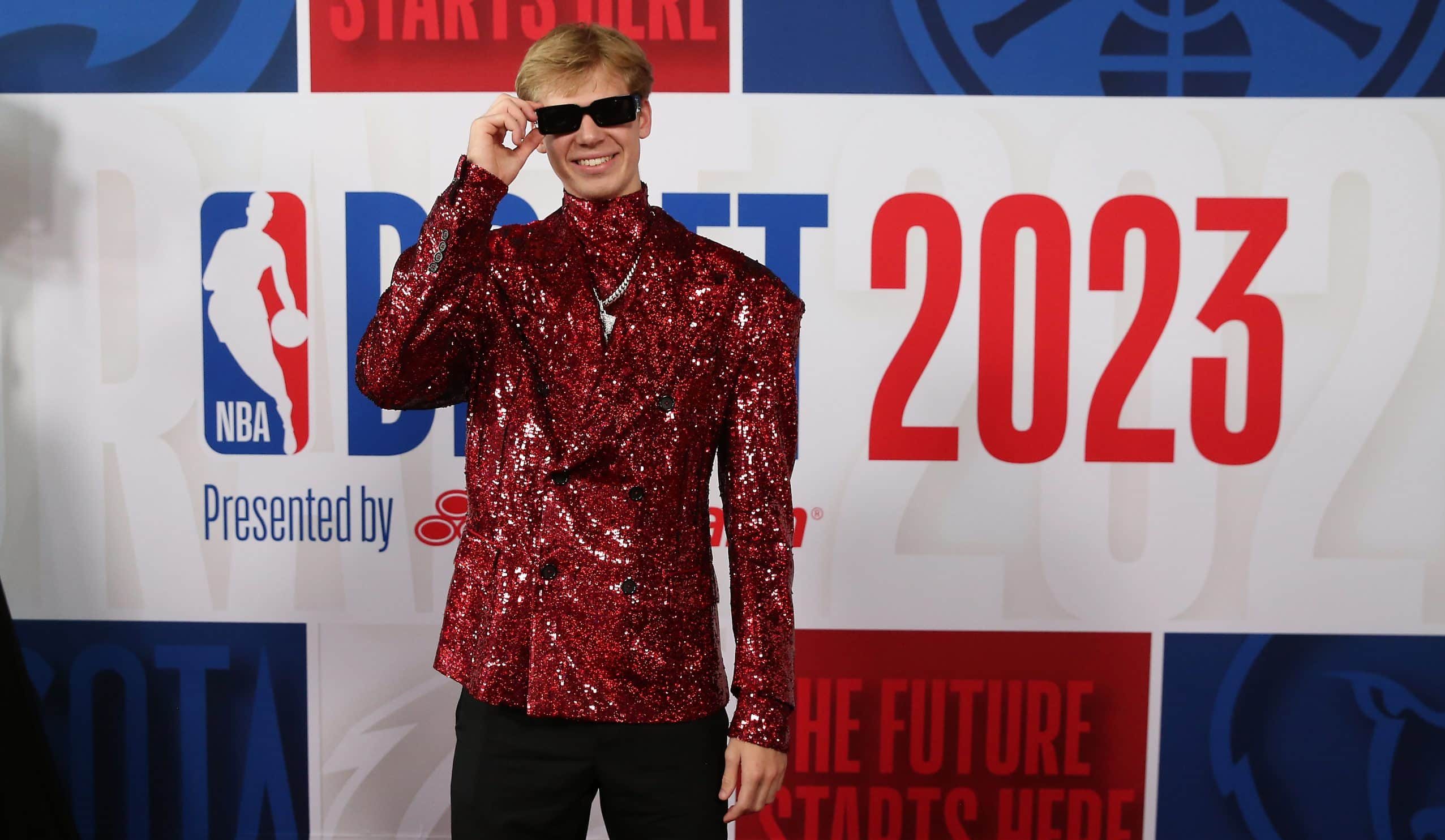


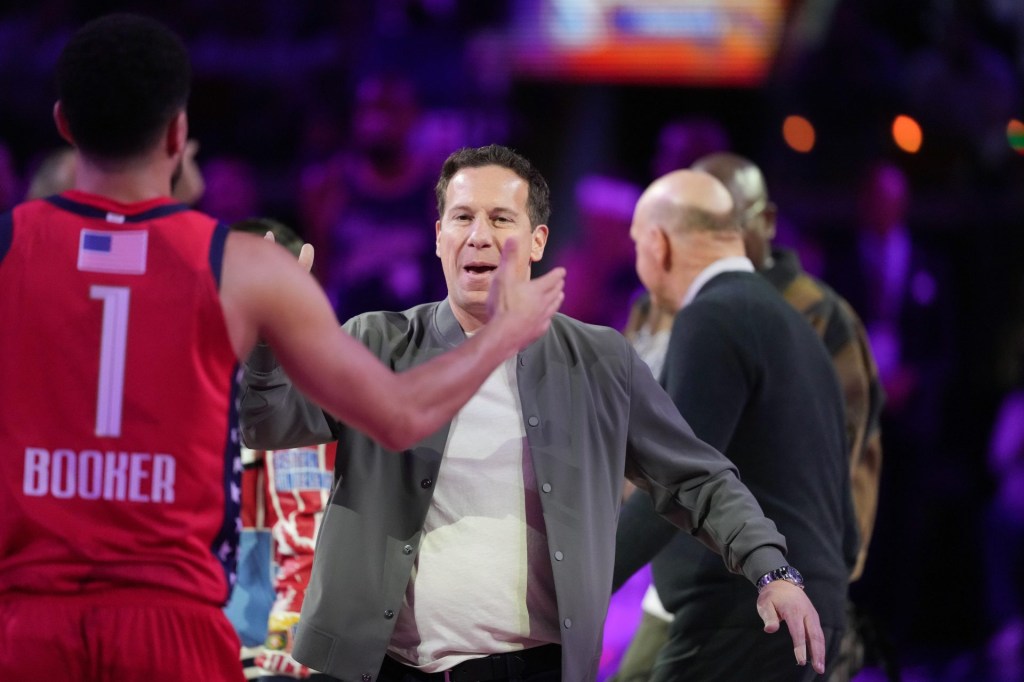
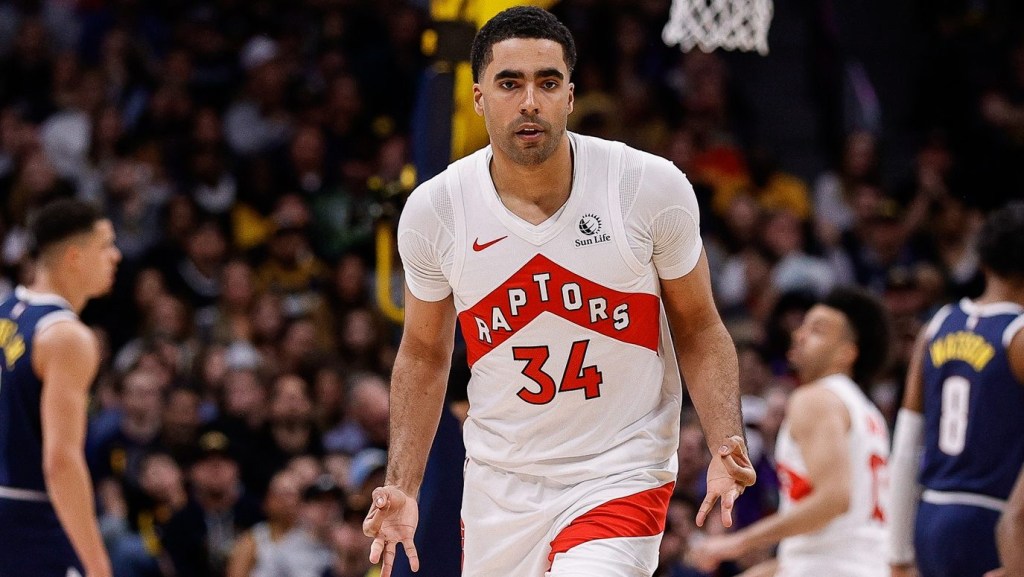

![[Subscription Customers Only] Jun 15, 2025; Seattle, Washington, USA; Botafogo owner John Textor inside the stadium before the match during a group stage match of the 2025 FIFA Club World Cup at Lumen Field.](https://frontofficesports.com/wp-content/uploads/2026/02/USATSI_26465842_168416386_lowres-scaled.jpg?quality=100&w=1024)
![[Subscription Customers Only] Jul 13, 2025; East Rutherford, New Jersey, USA; Chelsea FC midfielder Cole Palmer (10) celebrates winning the final of the 2025 FIFA Club World Cup at MetLife Stadium](https://frontofficesports.com/wp-content/uploads/2026/02/USATSI_26636703-scaled-e1770932227605.jpg?quality=100&w=1024)


